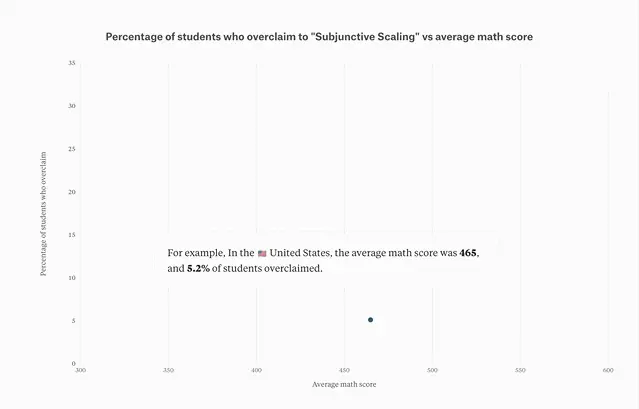Do students around the world think they know more than they do?
2025-04-24

Check out my latest interactive story published in the Data Visualization Society’s Nightingale!
What happens when students are asked about their familiarity with a math concept that doesn’t actually exist? This curious question is the foundation of my newest data story, where I dive into data from the OECD’s Programme for International Student Assessment (PISA) to explore how students perceive their own knowledge.
Key Questions Explored
- Do students across the globe tend to overclaim what they know?
- How does this tendency vary by country and over time?
- Is there a link between overclaiming and math performance?
- What might these patterns mean for education research and assessment design?
Why International Large-Scale Assessments Matter
This analysis comes at a critical moment. With recent federal budget cuts affecting the National Center for Education Statistics (NCES)—and with uncertainty looming over the U.S.’s continued participation in international large-scale assessments (ILSAs) like PISA—this work underscores the importance of globally comparable education data.
ILSAs like PISA provide essential insights for:
- Comparing education systems around the world
- Informing policy decisions with robust data
- Advancing assessment practices
- Understanding how culture shapes education and learning
(On a personal note: as part of these changes, I’m currently exploring new job opportunities—feel free to reach out if you’d like to connect!)
Explore the Interactive Story
I invite you to explore the full interactive piece, where you can dive into the data and see how student self-perception varies across different countries and contexts.